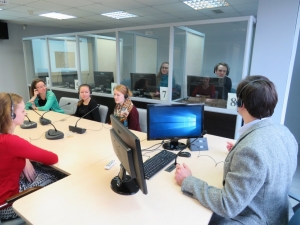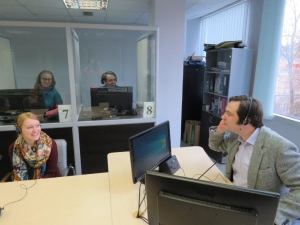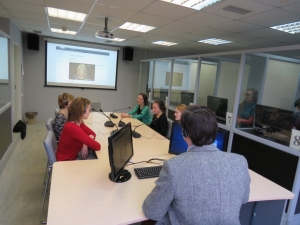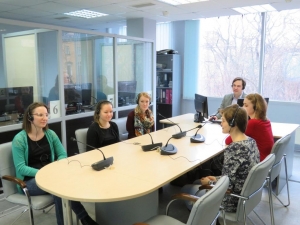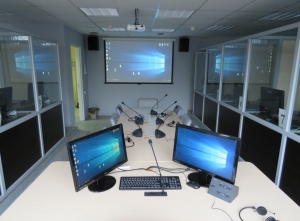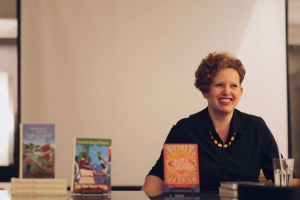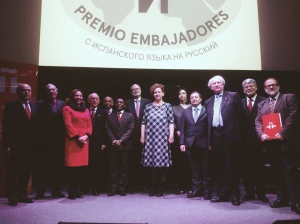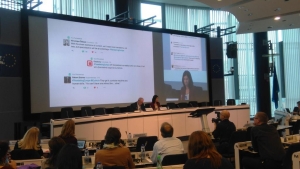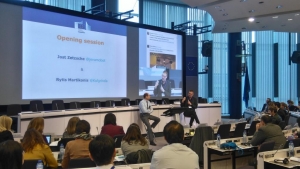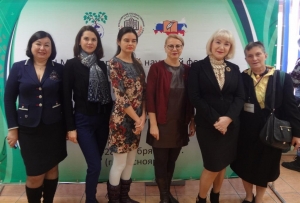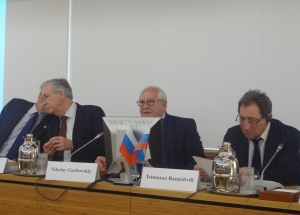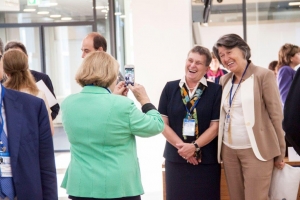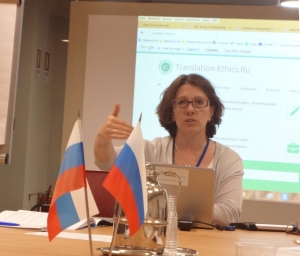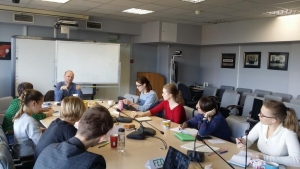New Equipment for SCIT
Thanks to a subsidy from the Committee for Science and Higher Education of the Government of St. Petersburg, SCIT will now be able to re-equip its simultaneous interpreting classrooms. Herzen University continues its cooperation with Televic, an interpreting equipment company, and has placed an order for its top of the range interpreter training equipment. Two classrooms are now fully furnished with TELEVIC AVIDANET LIVE equipment, and each booth with a Televic Lingua Interpreter Desk. New overhead projectors in each classroom also allow for parallel videoconferencing opportunities.
The new equipment has extended SCIT’s functionality: class time is maximised, students can be given individual tasks and have their performance monitored, as well as benefit from better self-study opportunities.

 Русский
Русский

